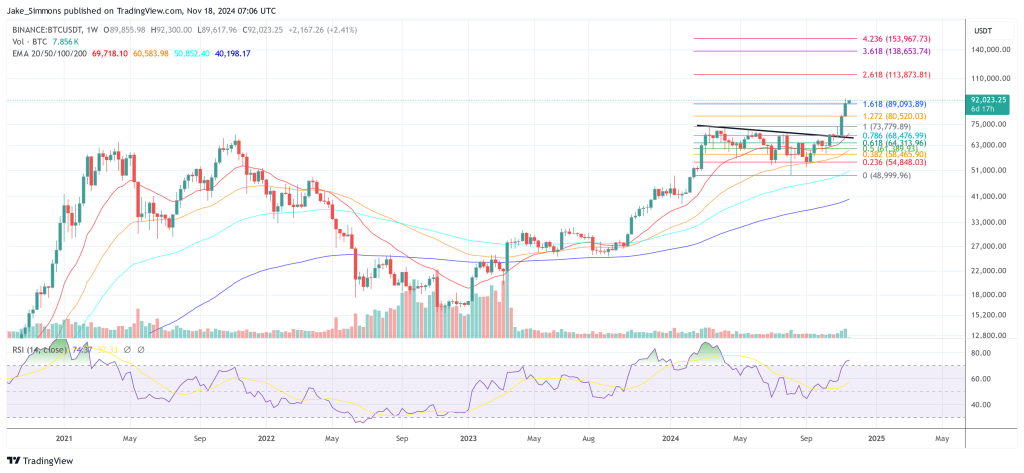In a notable announcement, Turkey’s Treasury and Finance Minister Mehmet Simsek has clarified that the government does not plan to impose taxes on profits derived from “stocks and cryptocurrencies.”
This decision reflects a broader strategy to “foster” investment and growth in financial markets in the region without the burden of direct taxation on gains.
Tax Strategies And Crypto Regulatory Innovations In Turkey’s Financial Markets
While Turkey has disclosed its no tax plan for digital gains, the government is reported to be still exploring the implementation of a “very limited” transaction tax on these assets, the specifics of which have yet to be detailed.
This approach aligns with Minister Simsek’s philosophy of ensuring comprehensive taxation to promote “justice and efficiency.” However, concerns have been raised about the potential impact of even a minimal tax on market dynamics.
Although limited, Mehmet Gerz, CEO of Ata Portfoy, argues that any tax on stock transactions could inadvertently introduce “inefficiencies, raise commission costs, and ultimately deter trading activities.”
This perspective highlights the delicate balance policymakers must navigate to enhance revenue without stifling economic activity.
The decision to keep stock and cryptocurrency profits untaxed comes as Turkey nears the completion of its regulatory framework for cryptocurrencies. This framework is a pivotal development for the country’s financial technology landscape.
Minister Simsek has indicated that these regulations are primarily aimed at enhancing the security of crypto trading and aligning with international standards to address money laundering and terrorism financing—key factors for Turkey’s objective to be removed from the Financial Action Task Force’s (FATF) grey list.
The new regulations will introduce a licensing system for crypto trading platforms overseen by Turkey’s Capital Markets Board (CMB). This system will set minimum operating standards, including qualifications for founders and managers and organizational and capital requirements.
These measures are expected to provide a “safer and more structured” market environment, contributing positively to the sector’s “stability and growth.”
Industry Reaction And Future Prospects
The industry’s response has been cautiously optimistic. Mucahit Donmez, CEO of Binance Turkey, recently expressed support for the regulatory directions, particularly the emphasis on security, capital adequacy, and operational standards for crypto platforms.
According to Donmez, these regulations will significantly benefit the sector by ensuring “better protection” for users’ assets and establishing clear operational criteria.
As Turkey moves forward with these regulations, the region has the potential to become a significant hub for digital finance growth.
Regulatory clarity and the absence of profit taxes could attract more investors and companies to the Turkish markets, contributing to the country’s economic resilience and technological advancement.
With these strategic moves, Turkey is positioning itself as a leading player in the global digital economy. It aims to leverage its geographic and economic position to bridge various financial ecosystems across Europe and Asia.
Featured image created with DALL-E, Chart from TradingView

You can get bonuses upto $100 FREE BONUS when you:
💰 Install these recommended apps:
💲 SocialGood - 100% Crypto Back on Everyday Shopping
💲 xPortal - The DeFi For The Next Billion
💲 CryptoTab Browser - Lightweight, fast, and ready to mine!
💰 Register on these recommended exchanges:
🟡 Binance🟡 Bitfinex🟡 Bitmart🟡 Bittrex🟡 Bitget
🟡 CoinEx🟡 Crypto.com🟡 Gate.io🟡 Huobi🟡 Kucoin.
















Comments